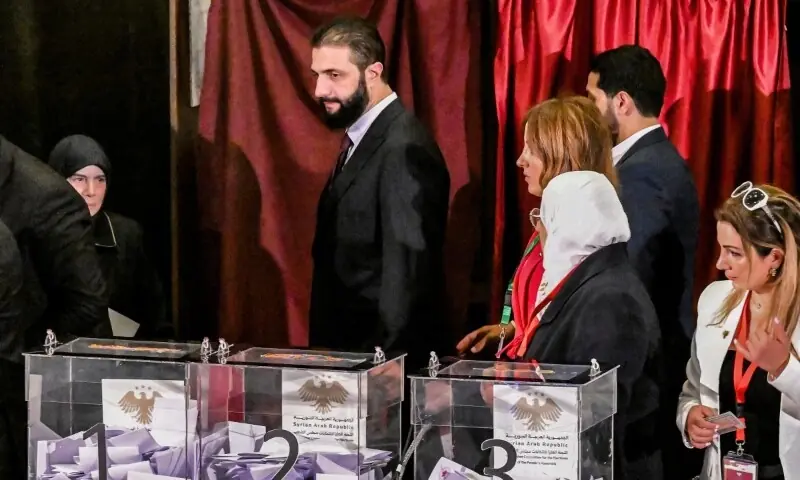DAMASCUS – Syria began a process on Sunday to select members for a transitional parliament, a move heavily criticized by observers and rights groups as undemocratic and designed to consolidate the power of interim leader Ahmed Al Sharaa. The assembly’s formation follows the overthrow of longtime ruler Bashar al-Assad in December after more than 13 years of civil war.
The 210-member body is intended to exercise legislative functions until a permanent constitution is adopted and direct elections are held. However, the process is far from conventional:
- One-third (70 members) of the assembly will be appointed directly by Al Sharaa.
- The remaining two-thirds will be selected by local committees chosen by an electoral commission, which was itself appointed by Al Sharaa.
This system, critics argue, allows Al Sharaa to “effectively shape a parliamentary majority composed of individuals he selected or ensured loyalty from,” according to a joint statement by more than a dozen rights groups.
Limited Scope and Voter Participation
The selection process on Sunday involved approximately 6,000 members of local committees queuing to cast their votes at the National Library, formerly the Assad National Library.
Over 1,500 candidates are running for the renewable 30-month mandate, though only 14 percent of them are women, highlighting a significant gender imbalance.
Crucially, large swathes of the country are excluded from the process:
- The Druze-majority Sweida province in southern Syria.
- The Kurdish-held northeast.
The 32 seats allocated to these regions will remain empty for now as they are outside Damascus’s immediate control.
“I support the authorities… but these aren’t real elections,” said Louay al-Arfi, a retired civil servant in Damascus, reflecting public skepticism while acknowledging the assembly as a “necessity in the transitional phase.”
The Path to Accountability and Geopolitical Focus
Interim leader Al Sharaa has defended the indirect process, citing the difficulty of organizing direct elections due to the millions of Syrians lacking documentation after being displaced or fleeing abroad during the conflict.
The final list of members is expected to be announced on Monday. Candidates were required to not be “supporters of the former regime” and must not promote secession. Notably, the candidates include Syrian-American Henry Hamra, the first Jewish candidate since the 1940s.
The incoming parliament is expected to tackle significant responsibilities, including ratifying international agreements. A key focus for some candidates, such as Hala al-Qudsi, an electoral committee member, is the ongoing geopolitical situation, stating she would “say ‘no’ to any security agreement with Israel that does not serve the interests of the Syrian people,” referencing Al Sharaa’s recent hope for such a deal.



